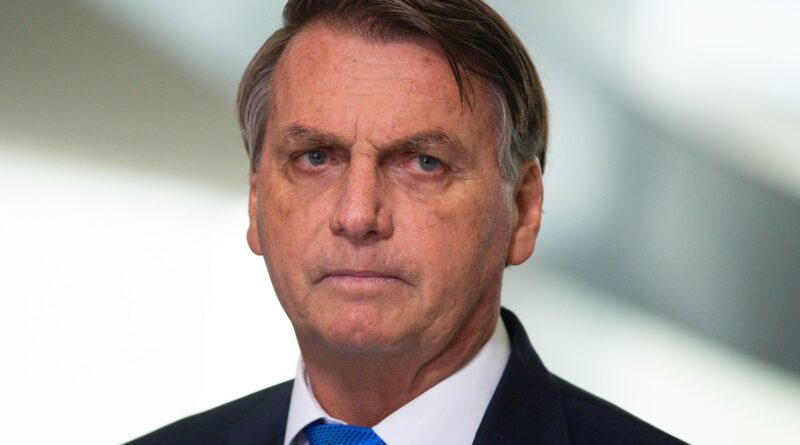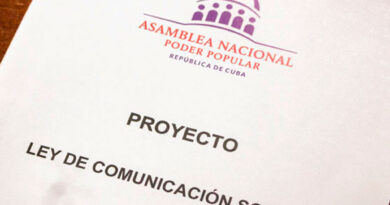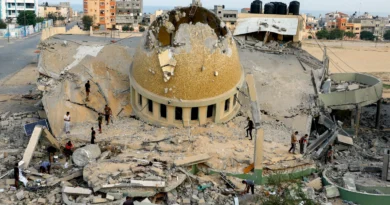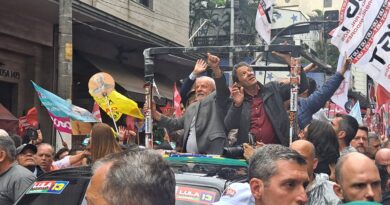The Brazilian electoral justice disqualifies Bolsonaro until 2030
JUAN MIGUEL MUNOZ
São Paulo
The Superior Electoral Tribunal (TSE) of Brazil adopted a decision on the last day of June that will bring a tail. In a vote of its seven members, five of them decided the political disqualification of former President Jair Bolsonaro, who will not be able to stand in any election until 2030.
The magistrates described the action of the extreme right leader in a meeting he held on July 18 with dozens of accredited diplomats in Brasilia as an abuse of power – also due to the use of public resources and public television.
In said meeting, the incumbent president Bolsonaro attacked harshly, in a speech riddled with lies, against the system of electronic ballot boxes in force in Brazil since 1996, questioning the credibility of the elections that would be held three months later and in which he won. his staunch opponent, Luis Inácio Lula da Silva.
In addition, he attacked the president and three TSE judges, to whom he attributed partisan motivations. The two dissenting judges did not observe that Bolsonaro's behavior was serious enough to vote for his disqualification. The convicted person can still appeal to the Supreme Court. But his political career is in serious danger.
The position of president of Brazil is becoming a risky activity in a country where the powers of the executive and judicial branches and of certain institutions – especially the Armed Forces – often have blurred contours.
In the opinion of many analysts and academics, the interventionism of the Supreme Court in Brazilian politics is exaggerated because it is assuming the role that corresponds to the voters. It floats in the environment that the Supreme Court moves to the sway of political events, not only in the case of Bolsonaro's disqualification. He has already happened with Lula da Silva.
“In the case of Lula, the judiciary clearly thought that it had the right and the duty to prevent him from returning to the presidency. He considered that it was a risk and that the people needed to be protected. Only that in a democracy that is the role of the voters”, says, in the Folha de São Paulo newspaper on June 30, Political Science professor Fernando Limongi.
"You have to be very careful so that the idea that the judiciary is being exploited does not spread," adds Limongi.
And it is evident that the appointments to fill vacancies in Brazil's highest courts, both those made by Bolsonaro and the current ones by Lula, do not help to strengthen the image of independence of the judiciary. The far-right president appointed the evangelical pastor André Mendonça to the Supreme Court, and Kassio Nunes to the TSE. Lula has done the same with Floriano de Azevedo and André Ramos for the TSE, and with his lawyer in the Lava Jato case, Crisitiano Zanin, for the Supreme Court.
In recent years, the removal of President Dilma Rousseff; the pronouncements of the heads of the armed forces against eventual decisions of the Supreme Court; the coup attempts like the one last January with the assault on the Legislative, Executive and Judicial branches; the disastrous management of the pandemic; the militarization of politics promoted by Bolsonaro or the growing influence of evangelical churches, nothing contributes to calm and moderation in Brazilian political life.
The always strident Bolsonaro has been one of those who have contributed the most to this polarization. And although it is too soon to know what his reaction will be, the former president described the decision of the TSE as a "stab in the back" and the procedure as "political trial", and added, referring to the president of the TSE, Alexandre de Moraes, that "No one can be the owner of the truth." Bolsonaro warned that he is not "dead" for politics.
Indeed, for the 2026 elections there is enough time for any event to reverse the situation. In 2019, almost no one was betting on the revival of Lula's political career, then imprisoned in a Curitiba police station. But after the corruption charges against the former leftist president of the Workers' Party (PT) were annulled by the Supreme Court, Lula defeated Bolsonaro last fall, and today he occupies the palaces of Planalto (seat of Government) and Alvorada (official residence ).
Bolsonaro, however, would have to overcome numerous obstacles to achieve his goal. In addition to facing another 15 pending legal cases, the far-right ex-president, even enjoying unquestionable popular support (49,1% of the votes in the last elections), also generates resistance among certain sectors of the right, including high-ranking military personnel, to despite the fact that the support he enjoys among the uniformed is enormous.
No president in the last decades relieved the head of the Army during his mandates. Bolsonaro changed to three. And some of them seriously disagreed with the president for his management of the coronavirus pandemic, and in no case did they support the president's statements about the unreliability of the electronic ballot box system.
Bolsonaro's talkative character doesn't help him either. There is no shortage of political and economic leaders who consider that his behavior did not correspond to the dignity of the position he held. An example: I call Luís Roberto Barroso, former president of the TSE and defender of electronic ballot boxes, an “idiot” and a “son of a bitch”, among other nice things. The far-right leader's outbursts are a constant in his political career, which he began after he was expelled from the Army.
In any case, in Brazil speculation is already beginning about the possible successor to Bolsonaro to lead the right in the 2026 elections. There are three names that are emerging. Tarcisio de Freitas, Governor of São Paulo and former Minister of Infrastructure in the Government of Bolsonaro; the governor of Minas Gerais, Romeu Zema, and that of Rio Grande do Sul, Eduardo Leite. Nor is it ruled out that Bolsonaro's own wife, Michelle, attend.
There is, most likely, time left for things to return to the boiling point. During the days of the trial in the TSE and in the hours after the verdict, an evident coldness of the usually hyperactive and fiery supporters of Bolsonaro has been observed, especially on social networks.
Undoubtedly, one of the most relevant who has spoken in favor of the former president has been the governor of São Paulo, Tarcisio de Freitas: “President Jair Bolsonaro's leadership as a representative of the right is unquestionable and endures. Tens of millions of Brazilians have his voice. We're still together, President." The Bolsonaristas, that is certain, are not going to give up.













